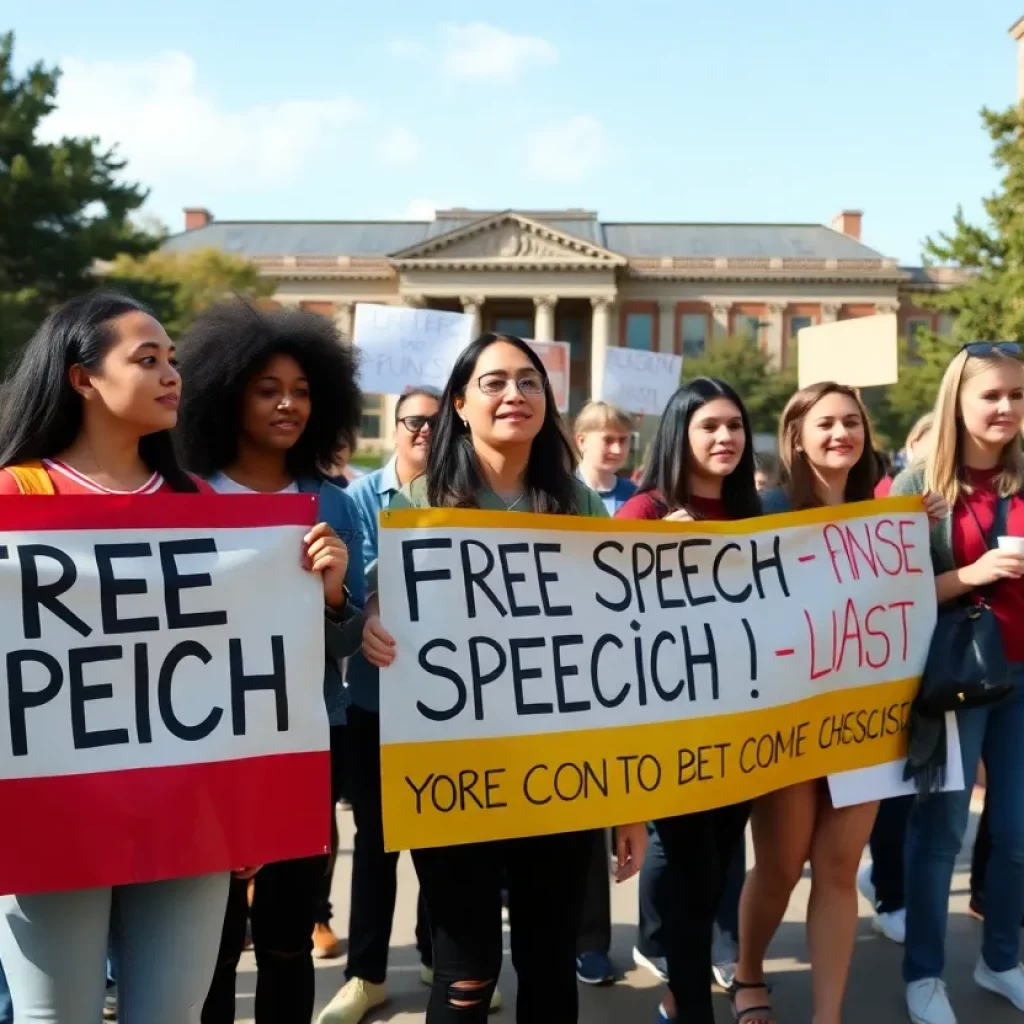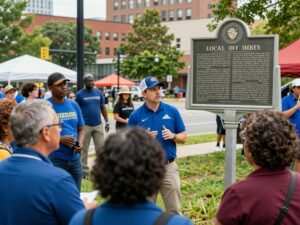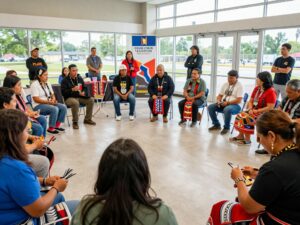News Summary
Mohsen Mahdawi, a Columbia University student and pro-Palestinian activist, was detained during a citizenship interview, raising alarms about immigration policy and free speech. His arrest has sparked concerns over the implications for academic freedom and has drawn attention from public figures and legal advocates. The situation reflects a troubling trend of scrutiny toward student activists in the U.S. and has ignited a broader debate about civil rights and the government’s role in campus discourse.
Columbia Student Arrest Raises Alarms About Immigration Policy and Free Speech
In a shocking turn of events, Mohsen Mahdawi, a green card holder and outspoken advocate for Palestinian rights, was detained by US immigration officials during a routine citizenship interview. The incident took place in Colchester, Vermont, where Mahdawi was attending a naturalization appointment. As he prepares to graduate from Columbia University next month, the circumstances surrounding his detention have sparked widespread concern regarding the implications for academic freedom and political activism in the United States.
Pro-Palestinian Activism Under Fire
Mahdawi, a philosophy major and co-founder of Columbia’s Palestinian Student Society, has been a vocal critic of Israel’s actions in Gaza. His activism, particularly following the Israel-Gaza conflict, has put him squarely in the crosshairs of federal authorities. Observers and his legal team argue that his detention is a case of retaliation for speaking out against Israeli policies. Video footage circulating on social media purportedly shows him being escorted into a police vehicle, heightening fears about the nature of his detention.
His lawyer has indicated that the timing of Mahdawi’s detention raises serious questions about his treatment as an activist. This case is not isolated; others who participated in similar protests—such as Mahmoud Khalil from Columbia and Rumeysa Ozturk from Tufts University—have also faced detention. The clampdown appears to be part of a broader national trend targeting students who advocate for Palestinian rights.
Legal Battles and Government Scrutiny
In a swift legal response, Judge William Sessions issued a temporary restraining order, preventing immigration authorities from moving Mahdawi or initiating deportation proceedings against him. As the legal landscape unfolds, the implications of such cases raise questions about constitutional rights and the definition of national security as it pertains to activism.
Born in a refugee camp in the West Bank, Mahdawi’s journey to the United States started in 2014 when he moved to the country and later secured permanent resident status in 2015. His identity as a committed Buddhist who champions non-violence and empathy further complicates perceptions surrounding his activism and the governmental response to it.
Political Ramifications and University Pressure
The detention of Mahdawi has gained the attention of figures like Vermont Senator Bernie Sanders, who has condemned his arrest as “illegal” and has called for proper due process. Meanwhile, investigations into multiple universities concerning their handling of antisemitism complaints have intensified. The Trump administration has been leveraging federal funding threats—amounting to $400 million towards Columbia—to influence university policies that critics argue stifle free speech.
Columbia University has faced increasing pressure to adopt new security measures, including hiring additional officers with arrest powers and implementing bans on masks during protests. However, these policies have drawn ire from critics who warn that they undermine academic freedom and the ability to engage in open dialogue on campus.
Broader National Concern
Recently, US immigration officials have ramped up efforts to scrutinize foreign students’ visas, with reports indicating the revocation of at least 300 visas, ostensibly to combat antisemitism. Detractors argue that these actions violate the fundamental rights to free expression and unjustly paint student activists as antisemitic.
With protests occurring on the Columbia campus, demonstrators have taken dramatic measures—such as chaining themselves to gates—as they call for the release of Mahdawi, Khalil, and other detained student activists. This outcry reflects growing national anxiety surrounding freedom of expression and government involvement in campus affairs, prompting students to voice their fears regarding safety and possible retaliation from authorities for their activism.
As Mahdawi remains detained, with his current whereabouts unknown, questions linger about the implications this case has for the rights of students and activists throughout the United States. What began as a discussion about immigration policy has evolved into a broader debate over free speech and government oversight in academic settings, leaving many to ponder the future of activism on campuses nationwide.
Deeper Dive: News & Info About This Topic
HERE Resources
Democratic Lawmakers Visit Detained Students Amid Tensions
Lawyer Claims Immigrant’s Arrest in Upstate NY was Illegal
Tragic Incident Strikes University of South Carolina Community
Columbia Student Arrested During Citizenship Interview
Controversial Detention of Columbia Student Sparks Outrage
Pro-Palestinian Activist Arrested Amid Citizenship Process
Columbia University Student Detained by Immigration Authorities
New Jersey’s Immigration Enforcement: A Legal Tug of War Involving Lawyers
Charleston Mayor Shares Updates in State of the City Address
Columbia Faces Traffic Safety Dilemmas Following Recent Hit-and-Run Incidents
Additional Resources
- NBC News: Detention of Columbia Student Sparks Protests
- Wikipedia: Columbia University
- CNN: Columbia Student Arrest Raises Concerns
- Google Search: Columbia University Protests 2025
- Encyclopedia Britannica: Immigration
- Google Scholar: Columbia University Protests
Author: STAFF HERE CHARLESTON
The CHARLESTON STAFF WRITER represents the experienced team at HEREcharleston.com, your go-to source for actionable local news and information in Charleston, Charleston County, and beyond. Specializing in "news you can use," we cover essential topics like product reviews for personal and business needs, local business directories, politics, real estate trends, neighborhood insights, and state news affecting the area—with deep expertise drawn from years of dedicated reporting and strong community input, including local press releases and business updates. We deliver top reporting on high-value events such as the Spoleto Festival USA, Charleston Wine + Food Festival, and the MOJA Festival. Our coverage extends to key organizations like the Charleston Metro Chamber of Commerce and the Charleston Museum, plus leading businesses in tourism and maritime industries that power the local economy such as South Carolina Ports Authority and the Charleston Visitor Center. As part of the broader HERE network, including HEREaiken.com, HEREbeaufort.com, HEREchapin.com, HEREcharleston.com, HEREclinton.com, HEREcolumbia.com, HEREgeorgetown.com, HEREgreenwood.com, HEREgreenville.com, HEREhiltonhead.com, HEREirmo.com, HEREmyrtlebeach.com, HEREnewberry.com, HERErockhill.com, HEREspartanburg.com, HEREaustin.com, HEREcollegestation.com, HEREdallas.com, HEREhouston.com, and HEREsanantonio.com, we provide comprehensive, credible insights into South Carolina's dynamic landscape.










